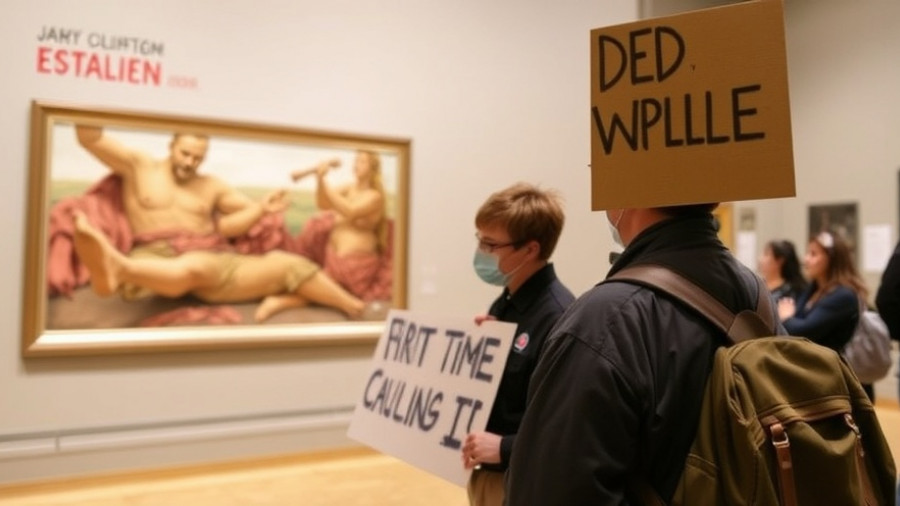
A Disproportionate Response: The Case of Timothy Martin
The recent sentencing of climate activist Timothy Martin to 18 months in prison for his nonviolent protest at the National Gallery of Art has ignited fierce debate among environmental advocates and civil liberties defenders alike. Martin's actions, which involved smearing washable paint on the protective glass of a famous sculpture by Edgar Degas, were intended as a powerful statement against the ongoing climate crisis that many believe is being ignored by government authorities. As the backlash grows, activists are questioning the very fabric of free speech and peaceful protest in today's political climate.
Protests as Civil Disobedience: A Long Tradition
Martin's case is not the first instance of civil disobedience becoming the focal point of legal battles. Historically, various movements have engaged in similar acts, from the Boston Tea Party to the civil rights sit-ins. These actions have often been labeled as illegal yet have contributed significantly to advancing social justice and awareness. “Acts of civil disobedience have been essential in pushing society toward moral clarity,” says Trevor Stankiewicz of Climate Rights International. “What sets Martin apart is the severe consequences he now faces—punishment that is a marked departure from the typically lenient treatment given to other forms of protest.”
Climate Activism under Fire: A Chilling Effect on Free Speech
In recent years, climate activists have experienced increasing legal challenges, from hefty fines to incarceration. Research indicates a troubling trend: governments worldwide are tightening laws against nonviolent protests, often under the influence of fossil fuel lobbyists. Martin’s 18-month sentence serves as a stark warning that the cost of activism can far exceed the harm inflicted on physical property, leading to a climate of fear among would-be protesters. “When peaceful protest is met with harsh penalties, it resonates beyond the individual cases,” notes Stankiewicz. “It sends a message that dissent will not be tolerated.”
The Broader Backdrop: A Global Crackdown on Protest
Martin's plight mirrors those of activists across the globe where protests against environmental degradation have increasingly met with stringent governmental responses. An investigation revealed that many state laws imposed harsher penalties specifically targeting climate activism, raising critical questions about the balance between maintaining order and respecting rights to protest. The pattern speaks to a broader strategy that aims to silence voices demanding urgent action on climate change.
Looking Ahead: What This Means for Future Activism
The consequences faced by Timothy Martin fuel speculation about the future of climate activism. As more individuals become aware of the precarious legal landscape surrounding peaceful protests, will they be dissuaded from taking a stand? Stankiewicz believes that the only way forward is for activists to continue highlighting the failures of the status quo. “Activism works when people are mobilized. They should be emboldened to speak up, not fearful of retaliation,” he asserts.
For many, the image of Martin, hand raised in silent protest at a prestigious art institution, is emblematic of the struggle faced by climate activists today. His retaliatory sentencing underscores the urgency for a societal shift that not only acknowledges climate emergencies but also embraces the freedoms essential for enacting change. As we look to the future, the need for sustained advocacy has never been more critical. Citizens must consider how these issues affect their lives, communities, and ultimately, the planet.
Engagement Action: Your Voice Matters
The events surrounding Timothy Martin's sentencing reveal the essential link between civic engagement and systemic change. If you are concerned about how this crackdown could affect your community, make your voice heard. Consider joining local environmental advocacy groups that fight for climate justice and support policies that prioritize sustainable practices. Together, we can create a brighter future that honors our rights to free speech and peaceful protest while confronting the climate crisis.
 Add Row
Add Row  Add
Add 





Write A Comment